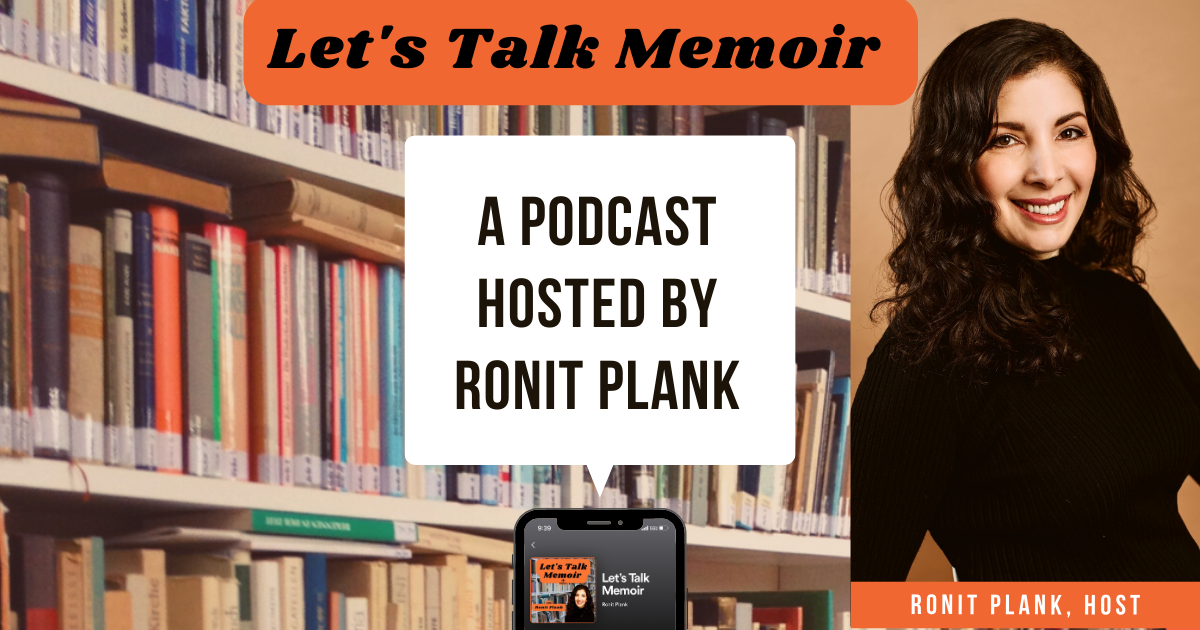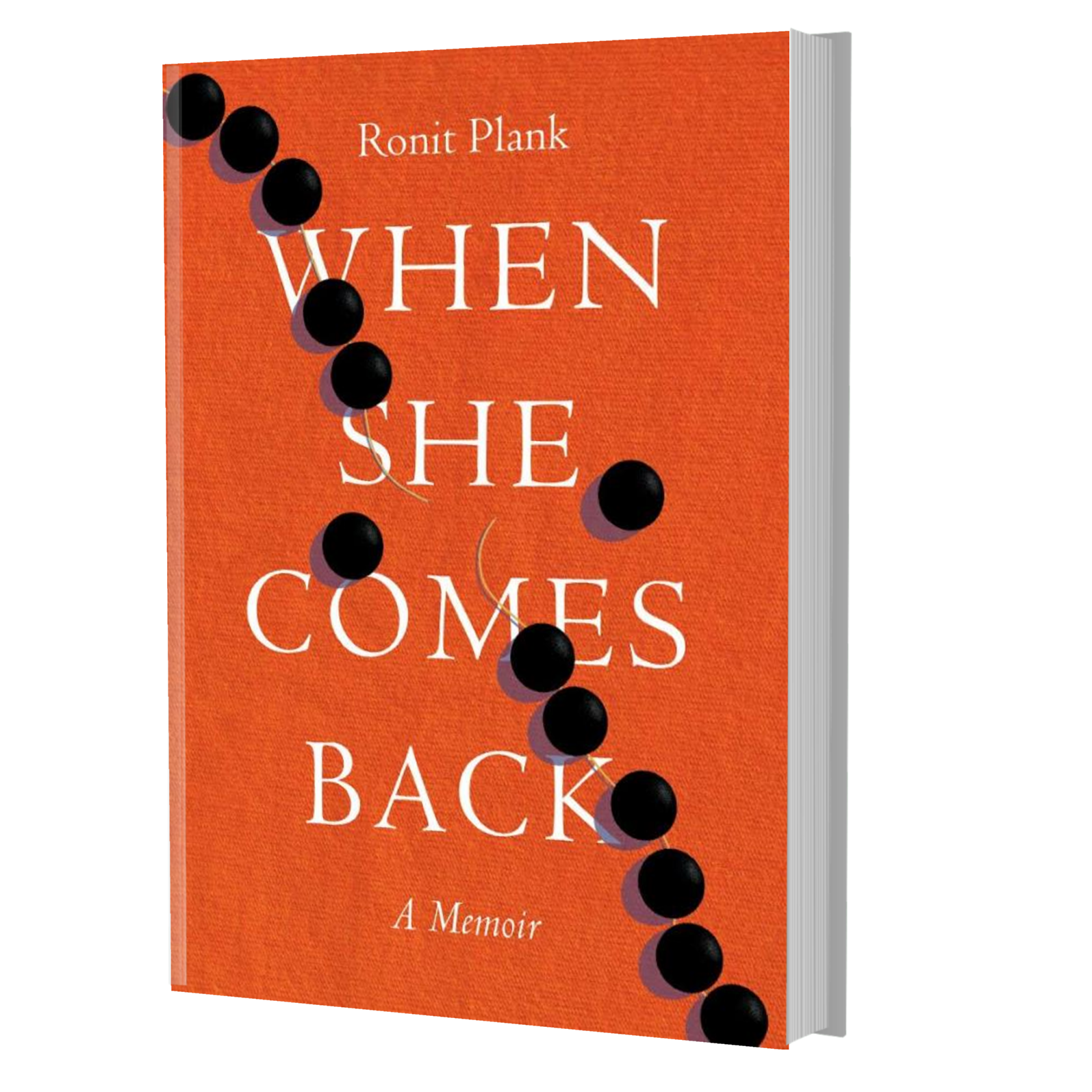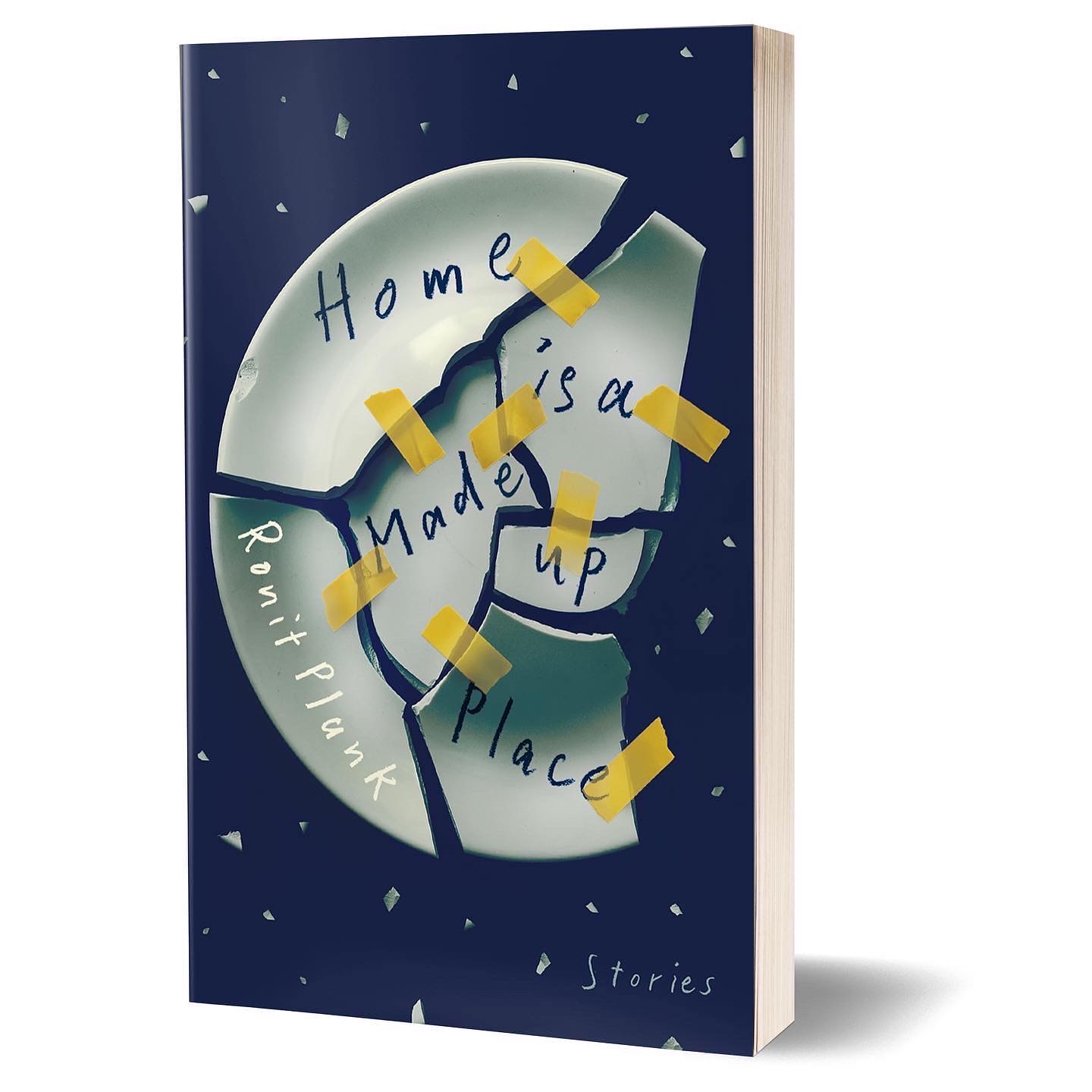Ronit Plank is a writer, teacher, podcast host & speaker who believes that stories save us.
Ronit Plank is a writer, teacher, podcast host & speaker who believes that stories save us.

Upcoming Events
- Join Redmond Literary Arts and the Redmond Library for an Author Salon: Ronit Plank in Conversation with Jenny Lisk on January 21, 2026 at 7pm
- My upcoming 10-week online memoir course through University of Washington's Professional and Continuing Education department is open for registration as of 10.15.25. Memoir Writing: Finding Your Story begins 3.30.26 and meets evenings from 6:00-9:00 pm PT. Here's the link for more information.
- March 5: Must Love Memoir (RSVP here) with Annie Liontas, Jeannie Vanasco, Chet'la Sebree, Hyeseung Song, Arianna Rebolini, and Krystal Marie Orwig: Meander Arts Bar, 1801 E Lombard St Baltimore, MD 21231

Stories save us.
Let’s Talk Memoir is a podcast for memoir lovers, readers and writers, featuring interviews with memoirists about their writing process, their challenges, and what they’ve learned about sharing the most personal of narratives. Hosted by writer, speaker, and memoirist Ronit Plank, each episode highlights different aspects of the memoir writing experience, writing tips, and inspiration.
Recently on Let’s Talk Memoir
Episode 223 ft. Louise Southerden
Louise Southerden joins Let’s Talk Memoir for a conversation about building a tiny home in Australia by hand during the Covid pandemic, being a travel writer for much of her career, choosing freedom over security, writing about exes, struggling with how much backstory...
Episode 222 ft. Anna Rollins
Anna Rollins joins Let’s Talk Memoir for a conversation about the relationship between evangelical purity culture and diet culture, incorporating research and reporting into personal narrative, the intricate connections between religion, God, and body shame, fearing...
Praise for Let’s Talk Memoir and Ronit Plank
Books by Ronit Plank
When She Comes Back
“An intimate, intuitive, emotionally vivid account that finds hope in reconciliation.” – Kirkus Reviews
When She Comes Back is a memoir about the loss of Ronit’s mother to the Bhagwan Shree Rajneesh, the guru at the center of the Netflix docuseries Wild Wild Country, and their eventual reconciliation. It’s also the story of a family trying to find itself, grownups who don’t know how to be adults, and what happens when the person your life revolves around can’t stay.
Home Is a Made Up Place
“A poignant and melancholy collection of stories about the constant search for a place to belong.” – Kirkus Reviews
Bracing and intimate, Home is a Made-Up Place is a collection of stories about reclaiming personal power, recognizing the difference between what can and cannot be changed, and the pull of familial attachments despite the toll they might take.


